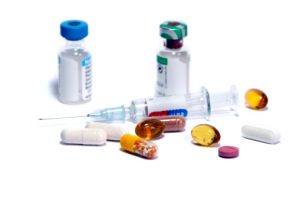
Previous research on testosterone replacement therapy showed an increase risk of heart attack. This was noted in participants over the age of 65, or who have a history of heart disease. Yet, other studies reveal men on testosterone therapy have lower incidences of death compared to men not receiving the therapy. Ongoing research is required to determine the risks and benefits of testosterone replacement therapy, but the latest research shows some promise.
The recent research excluded men with a history of heart attack or who presently have heart disease. Previous research has included these groups.
In early 2015, the FDA set out guidelines to clinicians in regards to the over-use of testosterone therapy. The FDA suggested heart attack and stroke risk could be linked to testosterone replacement therapy. The organization is continuing to research this link.
The study by Veterans Affairs is large, so it may gain momentum as being more reliable in its findings than smaller studies, said researchers.
Although testosterone replacement therapy isn’t intended to improve cardiovascular health – it’s goal is to boost “low T” – it’s important to note these added benefit regardless.
Rajat Barua, one of the paper’s authors said, “It is the first study to demonstrate that significant benefit is observed only if the dose is adequate to normalize the total testosterone levels.”
Researchers studied national data from more than 83,000 men. These people reported low testosterone and were over the age of 50. They all received care from Veterans Affairs between the years 1999 to 2014.
Men were split into three groups. The first group was treated with testosterone and had their levels normalized. The second group had testosterone replacement therapy, but levels did not revert. And the third group received no treatment at all.
In group one (treated men and levels become normal) the men were less likely to die during the follow up period by 56 percent, had a reduced heart attack risk by 24 percent and reduced their risk of stroke by 36 percent. These results were in comparison to group three, which did not receive treatment.
Study authors noted minor differences between group one and group two, and between group two and group three.
Barua said researchers can only speculate as to why these effects occur. He said body fat, sensitivity to insulin and inflammation are some of the biological pathways that could play a role. More research is needed, they said, to explain the effects of testosterone on cardiovascular health.
Both the FDA and authors of the new research suggest that testosterone replacement therapy should not be prescribed simply because a man complains about low testosterone-related symptoms. He said it’s important that men get tested to verify their levels before they seek out treatment as the risks the therapy can pose are significant.
The findings were published in the European Heart Journal.
Sources:
http://www.mayoclinic.org/healthy-lifestyle/mens-health/expert-answers/testosterone-therapy-side-effects/faq-20090015
http://www.research.va.gov/currents/0815-5.cfm